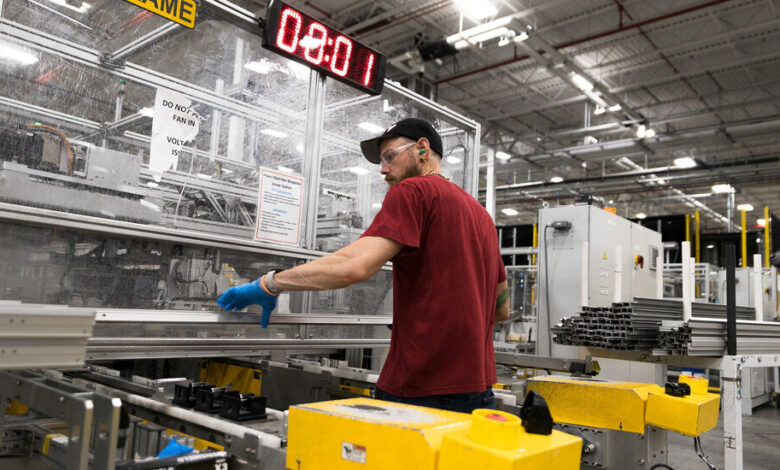First Solar says it will spend up to $1.2 billion to expand U.S. production.

First Solar, a big solar panel manufacturer, said on Tuesday that it would invest up to $1.2 billion to build its fourth factory in the United States, in large part because Congress passed a major energy and climate bill this month that expands incentives for renewable energy.
The company, which is based in Tempe, Ariz., will build the factory somewhere in the Southeast, its first manufacturing plant outside Ohio. The new plant would produce almost as much power-generating capacity on an annual basis as the total capacity put to use at solar farms and rooftops in the first three months of the year nationwide.
First Solar said it would also expand its three Ohio factories to help meet growing demand for the company’s panels, which use a thin film material rather than the crystalline silicon used in most panels. The company said it would create nearly 1,000 jobs between its new and existing plants.
The announcement comes just two weeks after President Biden signed the energy and climate bill known as the Inflation Reduction Act. The law authorizes hundreds of billions of dollars in federal tax credits, grants and loans in an effort to encourage companies and individuals to switch to renewable energy and electric cars to combat climate change.
Solar businesses stand to greatly benefit from the bill, which will expand and extend tax credits for renewable energy that were slated to end or diminish in the coming years.
First Solar’s announcement also helps Mr. Biden and other lawmakers in their goals to expand domestic manufacturing of solar panels and reduce the country’s reliance on China, Malaysia and other Asian countries where most of these devices are made.
“This investment is an important step toward achieving self-sufficiency in solar technology, which, in turn, supports America’s energy security ambitions, its deployment of solar at scale, and its ability to lead with innovation,” Mark Widmar, First Solar’s chief executive, said in a statement. “While we have made no decisions at this time, we continue to evaluate further investments in incremental capacity and could announce further expansion plans in the future.”